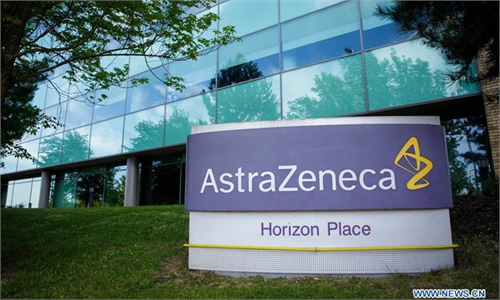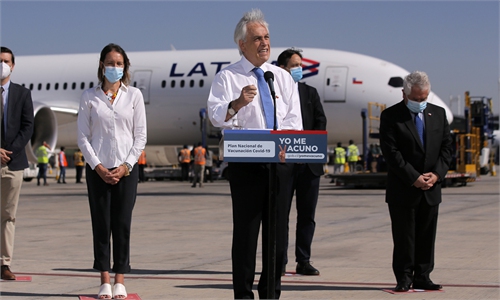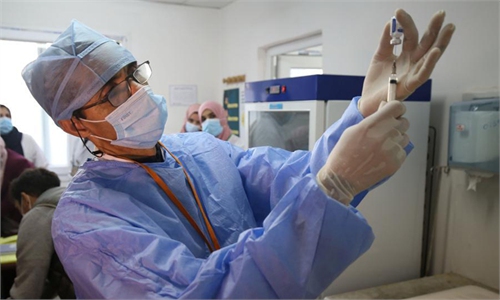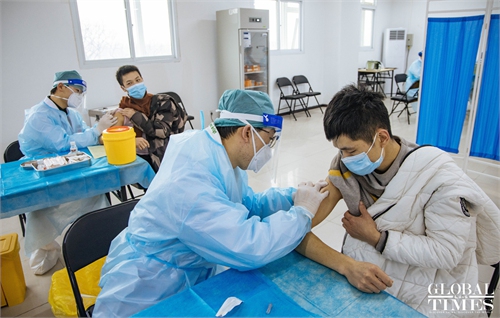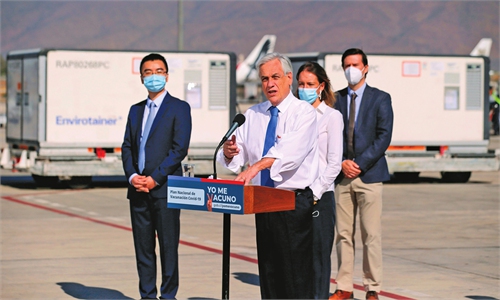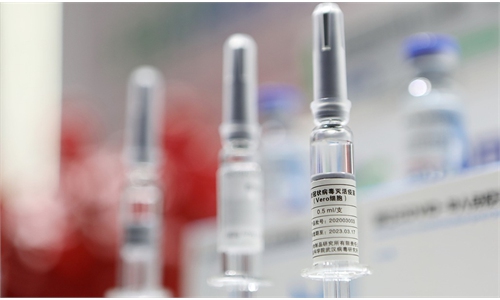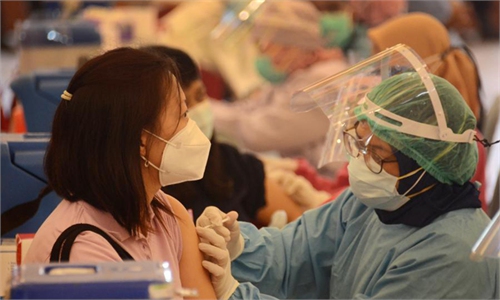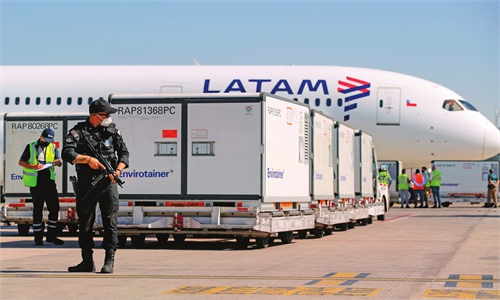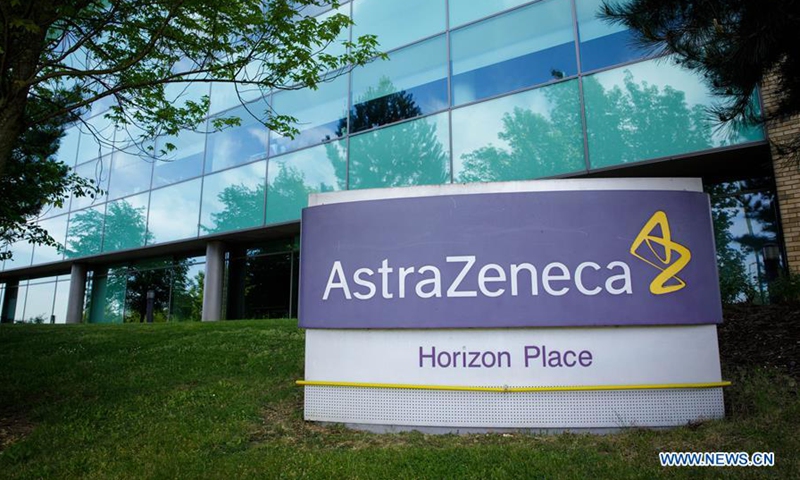
Photo taken on May 18, 2020 shows a logo in front of AstraZeneca's building in Luton, Britain. (Photo by Tim Ireland/Xinhua)
While the EU medicines regulator gave AstraZeneca's COVID-19 vaccine the green light for all adults with conditional marketing authorization, and deemed Pfizer's vaccines safe on the same day despite the reported deaths of some elderly people in Norway, Chinese observers raised their concerns over the EU's seemingly hasty move to push on with its vaccination campaign without fully considering the safety and efficacy of the prescribed vaccines.
The AstraZeneca vaccines demonstrated about 60 percent efficacy in clinical trials, deemed to meet EU standards, and European Medicines Agency (EMA) recommended its application for all adults from 18 years of age onwards, the EMA said on Friday as it recommended authorization of the vaccine. There are no solid results on how well the vaccine will work for the older population (aged over 55 years old), but EMA experts considered that the vaccine can be used in older adults.
Also, on Friday, the EMA said it identified no safety concerns with the COVID-19 vaccine jointly developed by Pfizer and BioNTech, and attributed the 23 reported deaths among frail and elderly patients in nursing homes in Norway to an adverse reaction to the first dose of the vaccine.
The EU's authorization of AstraZeneca vaccines whose efficacy rate is still in question somehow and its quick conclusion on safety concerns with Pfizer vaccines among the elderly people proves the EU's urgent intention to drive forward its vaccination campaigns, amid a pandemic surge and growing threats posed by the more contagious virus variants, said a Beijing-based immunologist who requested anonymity.
The immunologist told the Global Times on Saturday that the bloc attaches great importance to vaccines and would continue to push the usage of them despite safety concerns, because the EU clearly understands it cannot reverse the pandemic via anti-virus measures, as the bloc is difficult to implement thorough epidemic control measures.
Hours after the EMA's approval of the AstraZeneca coronavirus vaccine, French President Emmanuel Macron said the vaccine appeared to be "quasi-ineffective" on people aged over 65. Previously, Germany's vaccine commission also suggested to not give the AstraZeneca coronavirus vaccine to people older than 65 years.
Neither AstraZeneca's vaccines, which are an adenoviral vector vaccine, or Pfizer's mRNA vaccine has ever been used on a large scale for the prevention of infectious disease, and its safety has not been confirmed for large-scale use in humans, the immunologist told the Global Times.
All the deaths related to Pfizer vaccines have occurred in frail and elderly patients in nursing homes. All are over 80 years old and some of them over 90, Norwegian media the Norwegian Medicines Agency reported.
It was a surprise to see the EMA draw the conclusion over the safety of Pfizer's mRNA vaccine in such a hasty way, as the immunologist said the procedure should have taken place over several years, probably three to five years. "I suggest taking a cautious attitude over the EMA's evaluation."
In a move that risks sparking a global vaccine battle, the EU unveiled a drastic proposal to restrict COVID-19 vaccine exports, and urged AstraZeneca to prioritize deliveries to the bloc. Brussels and London have tossed accusations against each other over vaccine scarcity after AstraZeneca reduced its promised supply of 400 million doses due to production limits.
"Such hasty behavior of the EU pushing the coronavirus vaccine within the bloc is more of a political mission for EU officials to end a severe pandemic," the immunologist believed. They have to at least make a posture to address the crisis when nothing else is likely to help in dealing with the pandemic, he said.
Tao Lina, a Shanghai-based vaccine expert, told the Global Times that the hasty move of vaccine race is mainly because the bloc is concerned the delayed supply of vaccines could hinder its vaccination campaign.
The bloc aims to vaccinate 70 percent of the adult population by this summer and regarded vaccinations as essential to end the health crisis. But the current vaccinated percentage only accounts for 2 percent of the EU population.
While the EU is jostling for early jabs, Hungary signed deals with China's Sinopharm for 5 million doses, becoming the first EU member to purchase Chinese vaccines.
Some Chinese experts said Hungary's approval of Chinese vaccines is likely to attract more individual EU members toward Chinese vaccines, rather than waiting for unified orders made by the EU.
France's vaccination program coordinator, Alain Fische, quoted by RT, suggested the EU consider every vaccine available, including the Chinese one. "There should be no prejudice regarding the origins of vaccines," the professor said.
Leaders of many countries urged against a vaccine race between richer countries. Some developed countries including the US, Britain and Canada have reserved doses that far outnumber their populations, while many poorer countries suffer a huge shortage or no doses at all.
Experts warn against a "me-first" mindset and worry that unfair distribution of vaccines may heighten the economic crisis currently battering the world.

